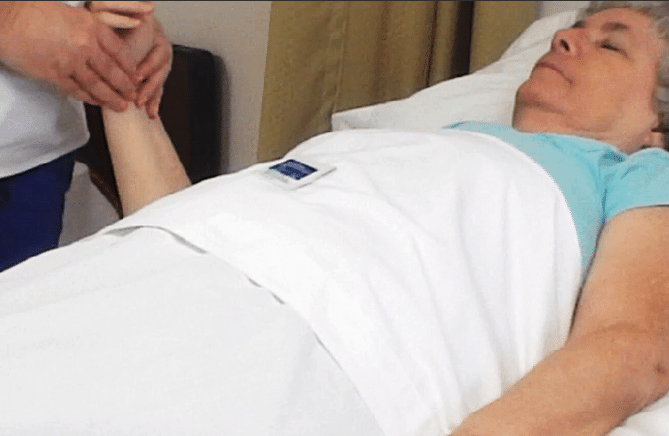Test Tip Tuesday: Privacy Curtain
Test Tip Tuesday Privacy Curtain Close the Privacy Curtain For All Skills…Except One! Privacy Curtain…

Respirations are easier to count if you place an alcohol pad on the patient’s abdomen. Why? Your eye is drawn to movement of a contrasting color. An alcohol pad packet is often a different color than the patient’s clothing or the sheet. This contrast in color makes the small motions of breathing much more visible to the observer.
An alcohol pad is small, lightweight, disposable and has a medical reputation. Patients often will assume you have a medical reason for using it. Most of the time, patients won’t even ask why you are putting it on their abdomen! If they do ask, a vague answer is usually enough to satisfy their curiosity. A small piece of paper will work just as well. Just don’t use anything heavy as it can interfere with breathing!
Everyone can use this technique! Students often use this to make it easier to learn. And you probably won’t need alcohol pads as your skill level increases. However, even after you master this skill, this technique can be helpful in difficult situations. For example, it is often used when trying to view respirations on shallow breathers, those with apnea, or patients near the end of life. Any situation where the patient’s respirations may be difficult to visualize can benefit from this. Using an alcohol pad isn’t required on the CNA exam, but is IS allowed! Since alcohol pads make it easier to see respirations, why not give yourself every advantage?

In conclusion, using an alcohol pad on a patient’s abdomen can make it easier to see their respirations for the exam and in certain clinical situations. Give it a try! Have someone lie down on a flat surface and observe their abdomen moving up and down. Then place an alcohol pad (or small slip of paper) on the volunteer’s abdomen and see how much easier it becomes!
Test Tip Tuesday Privacy Curtain Close the Privacy Curtain For All Skills…Except One! Privacy Curtain…
FAQ Friday What if I have a Criminal Background? Background Screening I am often asked,…
Newsflash Thursday Episode 1: The Case of the Pregnant Patient Imagine…you go to work tomorrow,…

Test Tip Tuesday 5 Secrets to Passing the CNA Clinical Exam – Part I #4…

